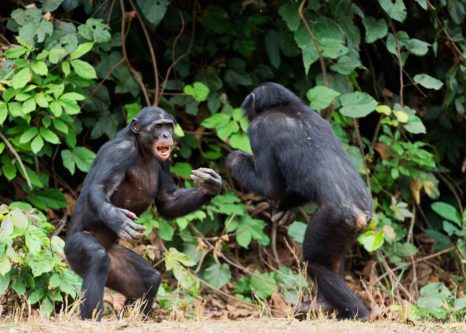Surgeons and the good old animal instinct
Surgeons are only human, and humans are animals – and subject to animal behaviour.

Dr Frans de Waal, an expert on animal behaviour, has looked at the behaviour of surgeons in the operating theatres to find out whether he could apply the same methods he used studying chimpanzees to improve the way they function in the operating theatre.
This fieldwork was produced by the University of Atlanta in Georgia, and analysed all the types of behaviour that occurred within a group of animals. Through the resulting “ethogram” – or list of types of behaviour – Dr de Waal’s team looked at interactions between 400 surgeons, nurses and technicians in more than 200 operative procedures. They recorded non-technical communications and classified them as either “cooperative” – in other words, likely to lead to better surgical results – or “conflictive” – theoretically producing worse or neutral outcomes.
Dr Laura Jones, who worked with Dr de Waal, describes in the proceedings of the National Academy of Sciences, some interesting findings. After assessing more than 6,000 insults and pleasantries between the participants, she found that surgical communication and interaction does indeed mimic animal behaviour in the wild, both collaborative and hostile, in just the same way as it would among wild animals as they compete for dominance over others of their own sex, while ingratiating themselves with members of the opposite one.
It is perhaps no surprise that 50.6% of the male-dominated surgical teams produced conflictive results than those led by a woman, at just 21.3%. In the all-female teams, meanwhile, there was no difference. And when Dr Jones looked at the percentage of interactions that were collaborative, it was higher when the leader of the surgical team was of the opposite sex to most of the underlings. This fascinating work by Dr de Waal and Dr Jones suggests that a more “balanced surgical team” would reduce the percentage of surgical mishaps.
